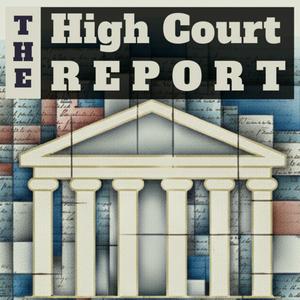Villarreal v. Texas | Case No. 24-557 | Oral Argument Date: 10/6/25 | Date Decided: 2/25/26
Overview
David Villarreal took the witness stand as the sole defense witness in his Texas murder trial, testifying he stabbed the victim in self-defense.
During his testimony, a scheduling conflict forced a 24-hour recess mid-direct examination.
Before breaking, the trial judge ordered defense counsel not to "manage" Villarreal's ongoing testimony overnight while expressly permitting all other consultation, including strategy, sentencing, and plea discussions.
The jury convicted Villarreal, and he received a 60-year sentence.
The Supreme Court unanimously upheld the judge's order as a permissible balance between the Sixth Amendment right to counsel and the truth-seeking function of trial.
Question Presented: Whether a trial judge may order defense counsel not to discuss a testifying defendant's ongoing testimony during a mid testimony overnight recess without violating the Sixth Amendment right to counsel.
Holding: A qualified conferral order prohibiting only testimony management during a midtestimony overnight recess permissibly balances the Sixth Amendment right to counsel against the truth-seeking function of trial.
Voting Breakdown: 9-0. Justice Jackson wrote the majority opinion joined by Chief Justice Roberts and Justices Alito, Sotomayor, Kagan, Kavanaugh, and Barrett. Justice Alito filed a concurring opinion. Justice Thomas filed an opinion concurring in the judgment joined by Justice Gorsuch.
Result: Affirmed.
Majority's Rationale:
The constitutional line separating Geders and Perry runs on subject matter, not time — testimony coaching loses Sixth Amendment protection once a defendant takes the stand. Courts may restrict discussion of testimony for its own sake while leaving all other attorney-client consultation — strategy, plea negotiations, witness decisions — fully protected. The judge's order targeted only testimony management and left every other protected topic available to Villarreal and his counsel overnight.
Alito Concurrence:
A recess should not alter the baseline rule that juries hear a defendant's testimony in his own words without counsel's real-time coaching. Indirect attempts to shape testimony carry the same constitutional infirmity as direct ones, regardless of strategic framing. Counsel may advise a client to consider a plea because the trial looks rough, but may not tell the client to clean up specific mistakes from the stand.
Thomas Concurrence in Judgment:
The trial judge's order plainly survived under Geders and Perry without any need for new rules or expanded doctrine. The majority announced a new "incidental testimony" carve-out that Perry never recognized and that these facts never required. Perry endorsed orders categorically forbidding testimony discussion — the majority created a protection Perry specifically declined to establish.
Oral Advocates:
For Petitioner: Stuart Banner, Los Angeles, Cal.
For Respondent: Andrew N. Warthen, Assistant Criminal District Attorney, San Antonio, Tex.; and Kevin J. Barber, Assistant to the Solicitor General, Department of Justice, Washington, D. C. (for United States, as amicus curiae.)
Link to Opinion: Here.
Link to Docket: Here
Preview Episode: Here
Timestamps:
[00:00:00] Case Overview
[00:01:59] Trial Scene Setup
[00:03:15] Geders vs Perry
[00:04:34] Content Based Line
[00:07:36] Applying to Villarreal
[00:08:13] Concurrences Split
[00:08:32] Alito Sharpens Rule
[00:10:34] Thomas Pushes Back
[00:12:24] Nationwide Impact
[00:13:43] Final Takeaways
[00:14:37] Wrap Up and Subscribe


